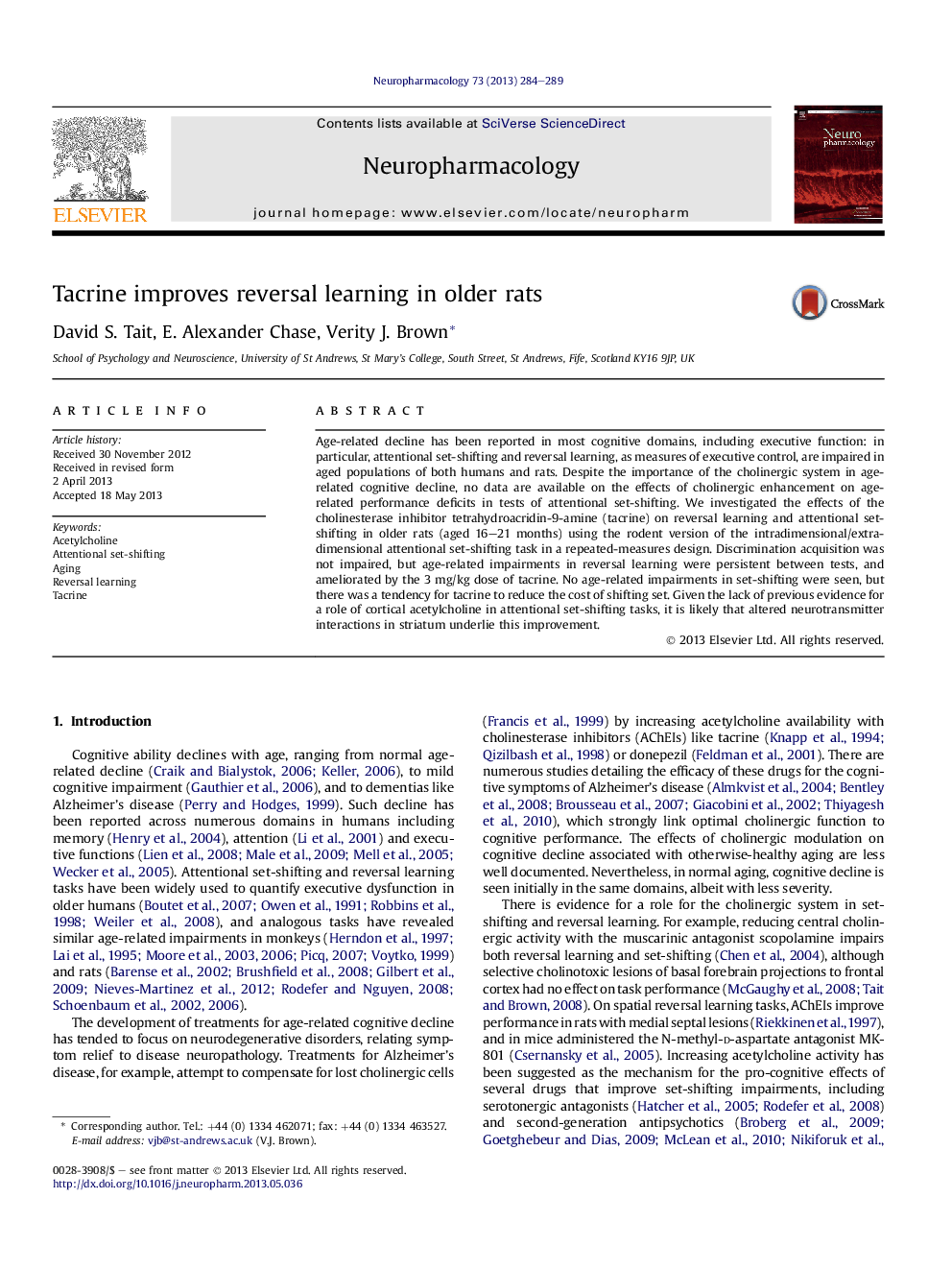| Article ID | Journal | Published Year | Pages | File Type |
|---|---|---|---|---|
| 5814947 | Neuropharmacology | 2013 | 6 Pages |
Abstract
Age-related decline has been reported in most cognitive domains, including executive function: in particular, attentional set-shifting and reversal learning, as measures of executive control, are impaired in aged populations of both humans and rats. Despite the importance of the cholinergic system in age-related cognitive decline, no data are available on the effects of cholinergic enhancement on age-related performance deficits in tests of attentional set-shifting. We investigated the effects of the cholinesterase inhibitor tetrahydroacridin-9-amine (tacrine) on reversal learning and attentional set-shifting in older rats (aged 16-21 months) using the rodent version of the intradimensional/extradimensional attentional set-shifting task in a repeated-measures design. Discrimination acquisition was not impaired, but age-related impairments in reversal learning were persistent between tests, and ameliorated by the 3Â mg/kg dose of tacrine. No age-related impairments in set-shifting were seen, but there was a tendency for tacrine to reduce the cost of shifting set. Given the lack of previous evidence for a role of cortical acetylcholine in attentional set-shifting tasks, it is likely that altered neurotransmitter interactions in striatum underlie this improvement.
Related Topics
Life Sciences
Neuroscience
Behavioral Neuroscience
Authors
David S. Tait, E. Alexander Chase, Verity J. Brown,
